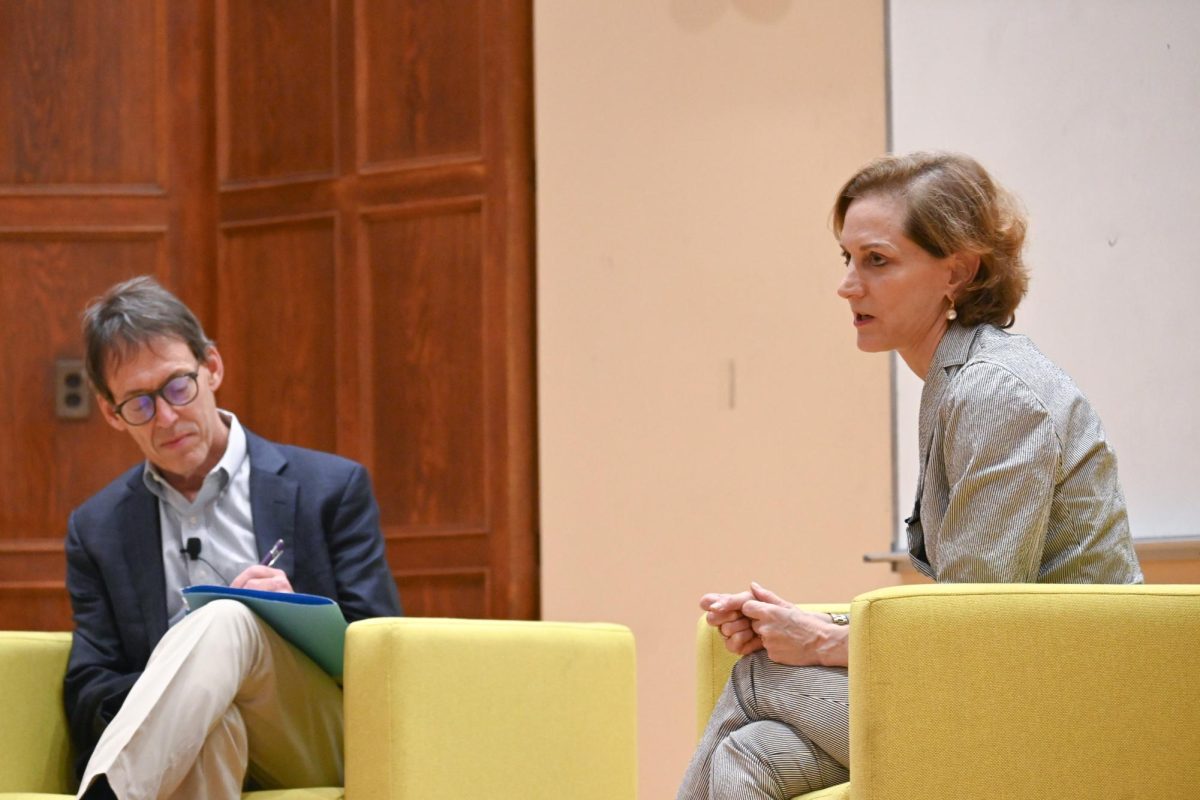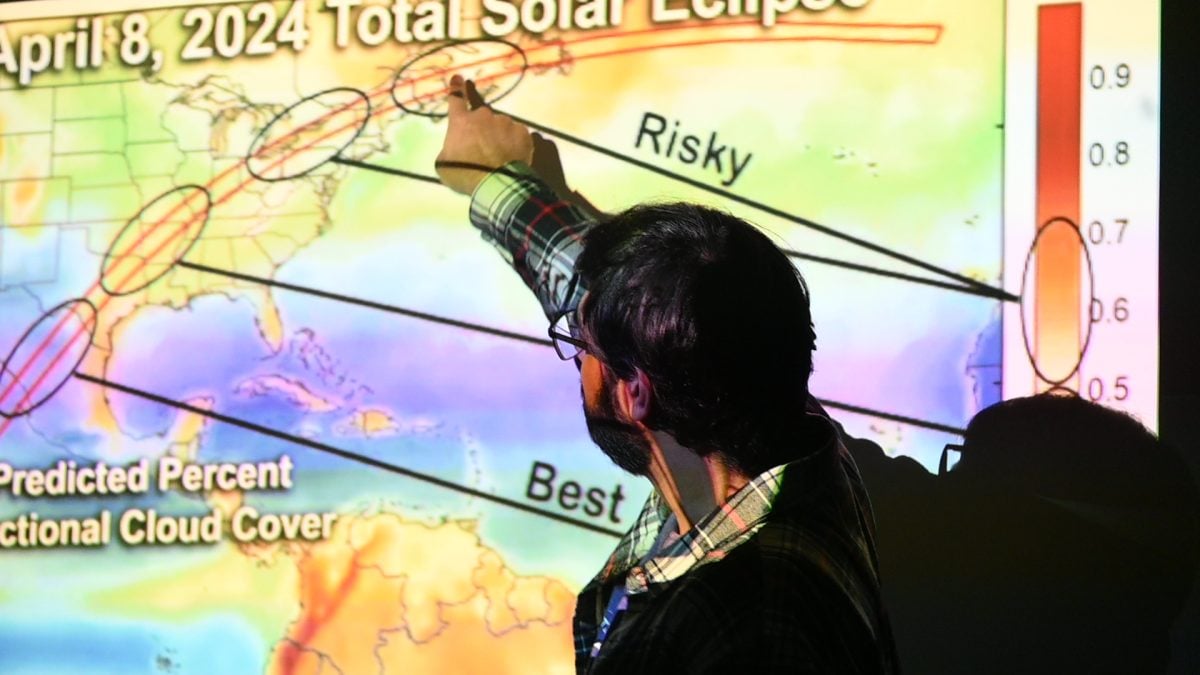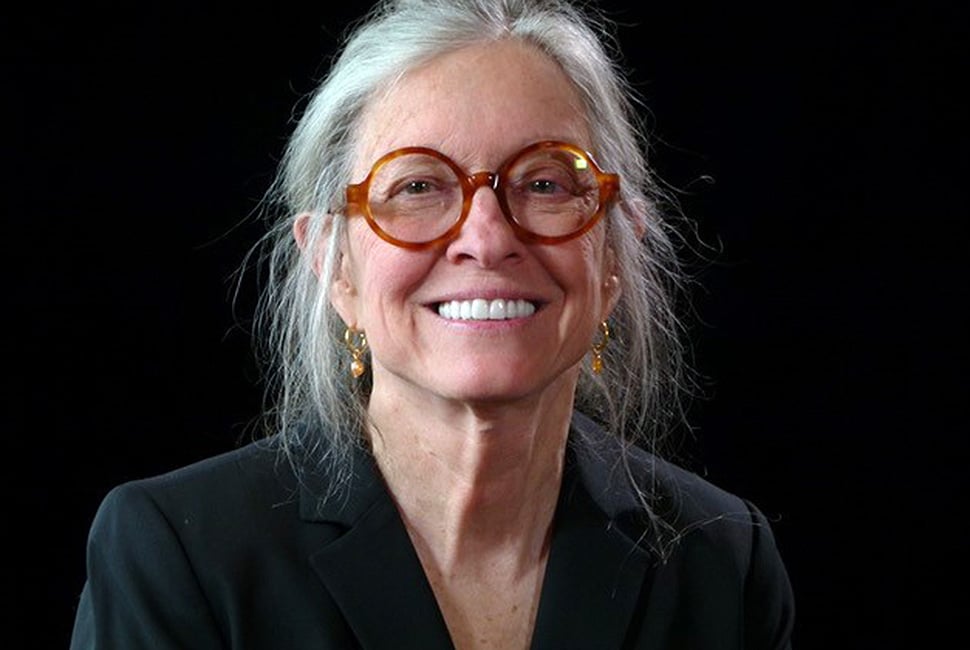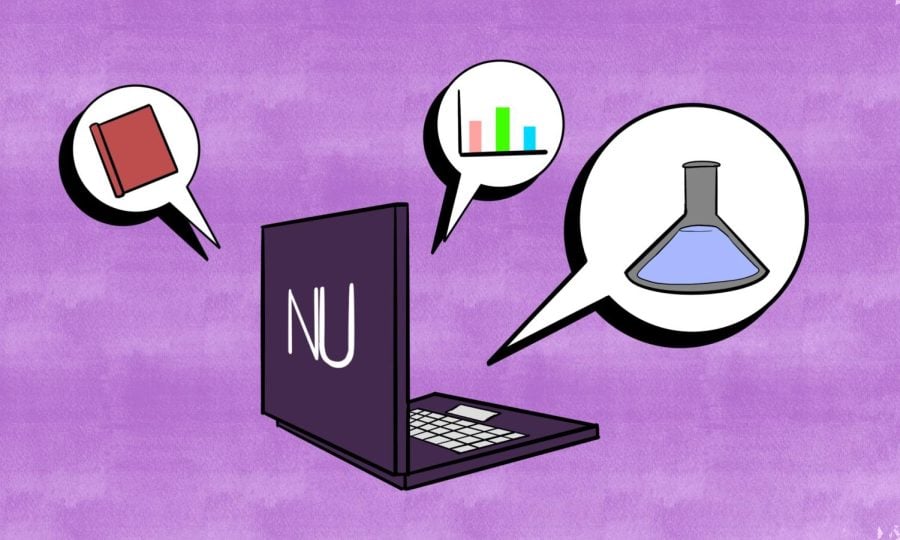More than 200 people filled Lutkin Hall on Wednesday to hear Pulitzer Prize-winning historian and journalist Anne Applebaum discuss the ongoing Russo-Ukrainian War and the rise of autocracies globally in an event organized by the Buffett Institute for Global Affairs.
“One of the metaphors that I like to argue against is this idea that we’re entering a new Cold War … You build a wall, and there are autocracies on one side and democracies on the other, and it’s going to be one side fighting the other,” Applebaum said. “I actually think the world is much more complicated than that.”
The event was co-sponsored by the Kyiv-Mohyla Foundation of America, the U.S.-based nonprofit that fundraises and supports the National University of Kyiv-Mohyla Academy in Ukraine, and six other organizations.
The event’s title, “The Twilight of Democracy,” references Applebaum’s 2020 book of the same name. In the book, Applebaum describes the rise of authoritarianism around the world and backsliding liberal democracies. She argues that the phenomenon should not be viewed as a historical anomaly.
Applebaum is now a staff writer at The Atlantic, where she covers topics like Eastern European geopolitics and U.S. foreign policy. She has also authored other critically acclaimed books, including “Gulag: A History,” which won her the 2004 Pulitzer Prize in general nonfiction.
Moderator and Medill Prof. Peter Slevin opened the discussion by quoting from Applebaum’s 2020 book.
“Given the right conditions, any society can turn against democracy,” Slevin read. “Indeed, if history is anything to go by, all of our societies eventually will.”
In today’s fast-changing world, many people are looking for a sense of security and stability, things that autocracy proposes to offer, Applebaum said.
However, an affinity toward autocracy is only one part of the problem, she said. The other part is the emerging network of autocracies across borders, which Applebaum said is the focus of her upcoming book, “Autocracy, Inc.”
“International autocrats now increasingly work together,” Applebaum said. “They don’t share an ideology, they don’t share a common history in the world and they can be very different.”
Applebaum said these autocracies increasingly cooperate with one another and share tactics and technology, especially those for spreading propaganda and suppressing free speech, as means to “poison democracy.”
Turning to the Russo-Ukrainian War, Applebaum said Russian President Vladimir Putin’s end goal is and has always been to remake the post-World War II Europe order and its emphasis on freedom, rights and human dignity.
“Freedom of speech, freedom to associate — he wants to end that,” she said. “He doesn’t want that language needed anymore.”
Judging from the lesson of the Second Chechen War in 1999, Applebaum said a Russian victory would mean the complete elimination of Ukraine and a conversion of its territory into a militarized zone where young people are drafted.
A victory for Ukraine, by contrast, would send a strong boost to opposition movements in autocracies around the world and a warning shot to autocrats, like the Chinese leaders in their consideration of invading Taiwan, Applebaum added.
After nearly 90 minutes of discussion and answering questions from the audience, Applebaum chose to end on a hopeful note about the importance of the moment — which she called “a turning point” — and the unpredictability of the future.
“I can’t tell you what’s going to happen, because what happens depends on what people do,” she said. “I don’t think anything is inevitable, and inevitability is a kind of cop out.”
Michael Pylypczak, a second-generation Ukrainian American, said he and his wife drove 90 minutes to hear Applebaum speak because “it was that important.”
Pylypczak said he appreciates Applebaum’s knowledge of Ukraine and other parts of the world and her ability to convey her ideas clearly. When speaking with people who did not support U.S. aid to Ukraine, he said he found many simply did not have accurate information about the war and changed their minds when they learned more.
“I think the vast majority of the American public, if they understood what was going on and had the right information, would definitely support Ukraine,” Pylypczak said.
Email: [email protected]
Twitter: @caseeey_he
Related Stories:
— Buffett Institute hosts lecture with former president of the International Criminal Court
— Buffett Institute hosts Conference on AI and National Security















